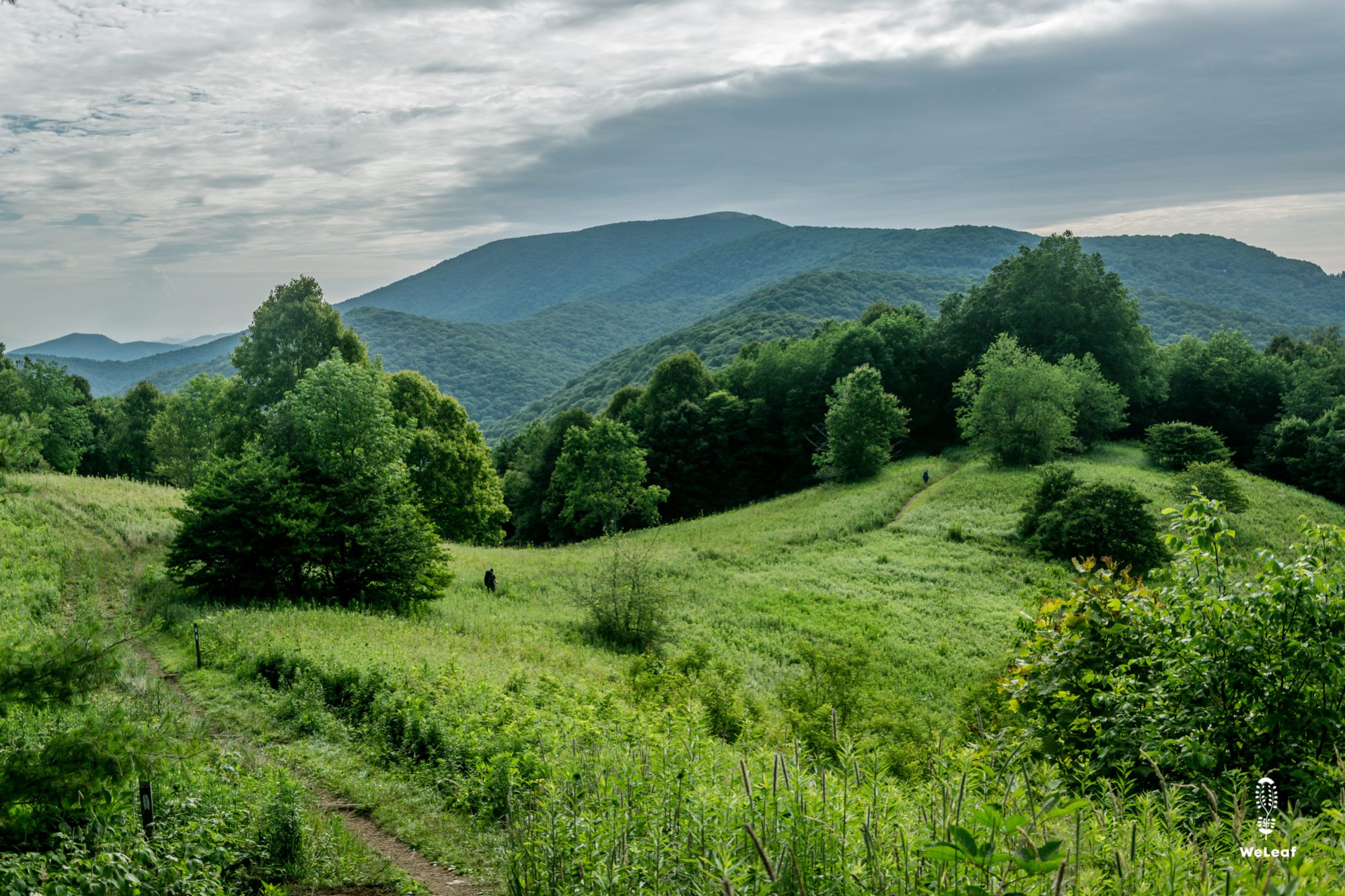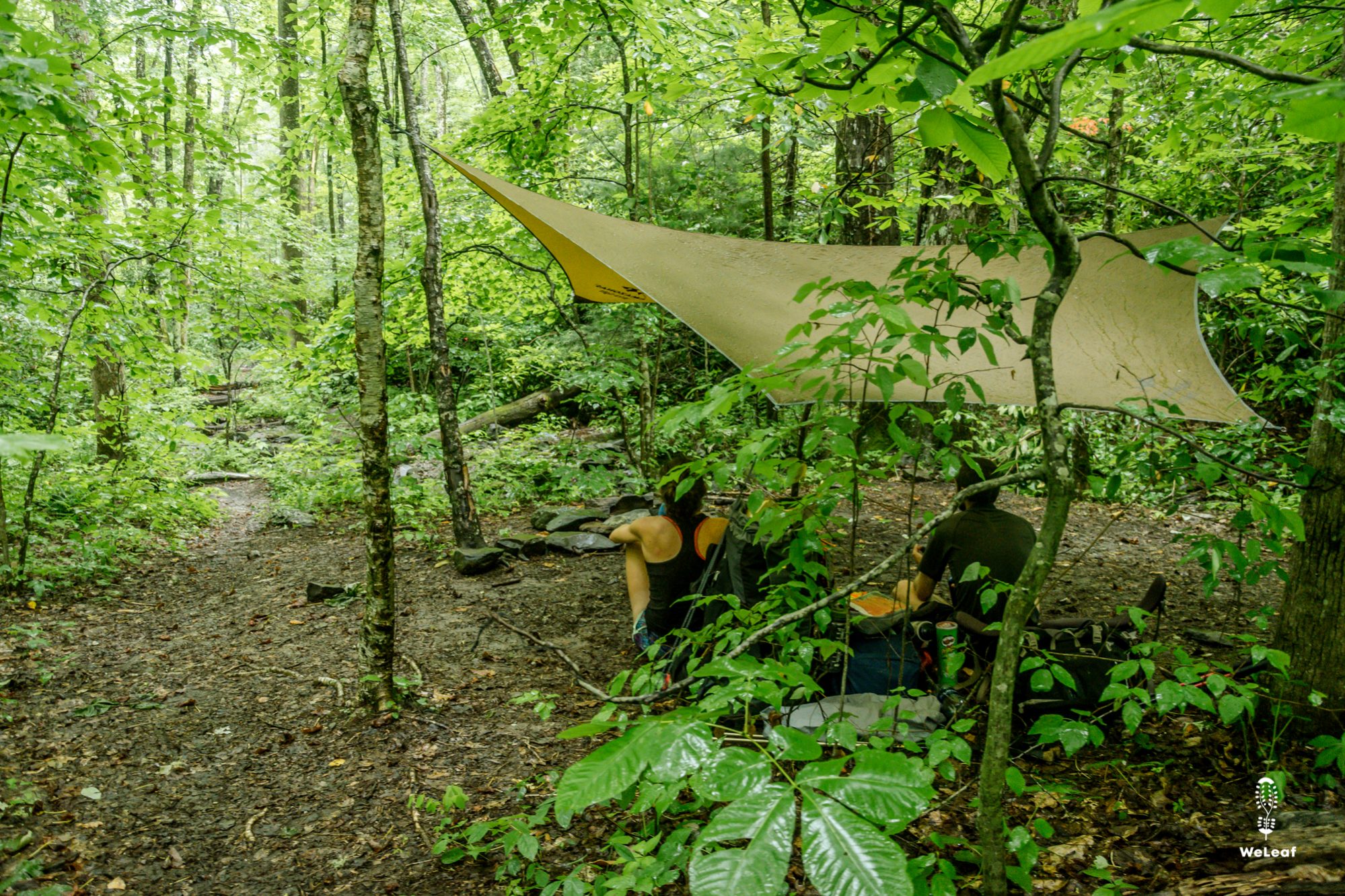
Suffer now

The Smokey Mountains
August 14, 2019
The greatest inspiration
August 30, 2019
Friday June 28th - Walnut Mountain Shelter
A few weeks before the start of our hike, Zoë felt the scar from her surgery again. The small hills with the alternation between exercise and relax over and over burdened the still sensitive scar. The limit came close a few times and we doubted what would be the smartest. Perhaps that was to stop cycling and hitchhike further to Atlanta. That goes against our stubborn and competitive spirit. We want to finish things, and of the two of us Zoë has that drive most. So we cycled on, despite the pain. In her head she worried even more about the coming hike. What if the pain gets worse, and how will the body react to a heavy backpack with a tight hip belt that presses on the scar. Mentally Zoë is preparing for a very difficult choice; if the pain persists while hiking, she must stop and cannot finish the AT. She seriously takes the scenario into account. "What would you do if I could not continue?" Zoë asks while eating an energy bar during a break. "I also thought about it," says Olivier, who is also worried. "Because Simon is coming, I would go on with Simon," his honest feeling says. We agree that Zoë will limit her backpack up to 10 kilograms, without the food. Olivier takes more weight in the beginning. This goes against Zoë's principle, which would just like to share the weight, head-on. We send a message to the doctor just to be sure and receive an answer the night before we start our hike. He reassures us and says that we can hike without problems. It is normal that the scar tissue is still sensitive, he replied. It eased Zoë.
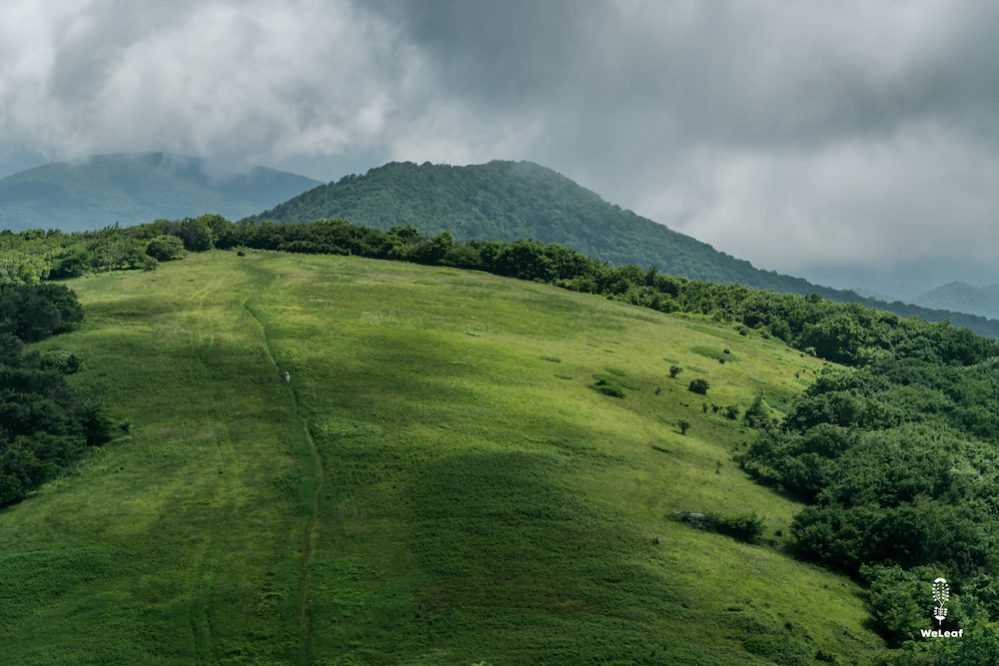
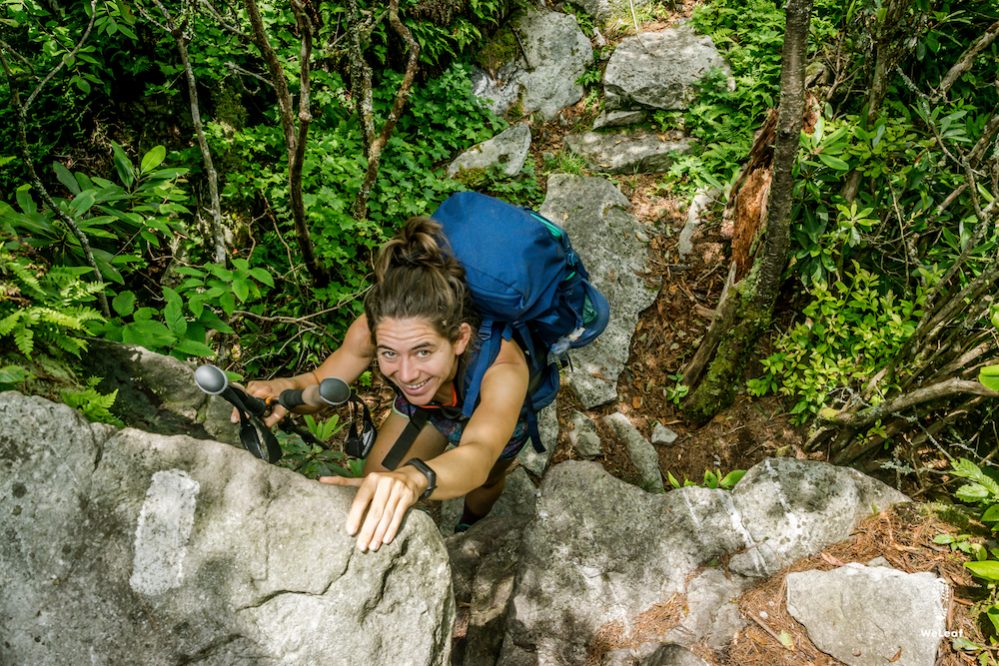
"I hardly feel anything," Zoë said, relieved after the first day of hiking. A few days later she doesn't even think about it anymore. Only very occasionally, when she almost slips over a stone and makes a crazy movement, she feels the scar. Preferably, though, she no longer feels any of those surgeries, it all takes way too long for everything to return to normal, if that ever returns to normal. Yet it is a relief that hiking is practically pain-free. We walk five to six hours a day, comparable to our cycling time. This corresponds to distances between 25 and 30 kilometers per day. Still it is physically harder than cycling and Olivier’ watch counts about 250 intensive minutes a day. We take an average of 40,000 steps per day and burn more than 4,000 calories. There is no flat part in the Appalachians and unlike the bike we have to do the meters downhill ourselves. We loose weight easily on the trail, kilos that we don't have in surplus. Although we ourselves are the cause of that large consumption.
Physically we like to push ourselves. The person who walks in front tries to run faster and faster until the others puff out loud or have to leave a small gap. We don't say it to each other, but secretly we all enjoy feeling stronger. Those who walk second and third suffer more psychologically, but in the mind only one thing counts, "keep following, he has a hard time too." We do not want to be inferior to each other, although we do not say it out loud. On Jacob's Ladder, a steep climb with many stairs, Zoë sets such a fast pace that Simon has to let a gap, even though it is only his third walking day. A week later he still talks about it, but then he leads the way and tries to walk us off. Occasionally we are all need a breather and we talk about a topic. Future plans, travel stories, chemistry lessons from Simon and fantasising about food.

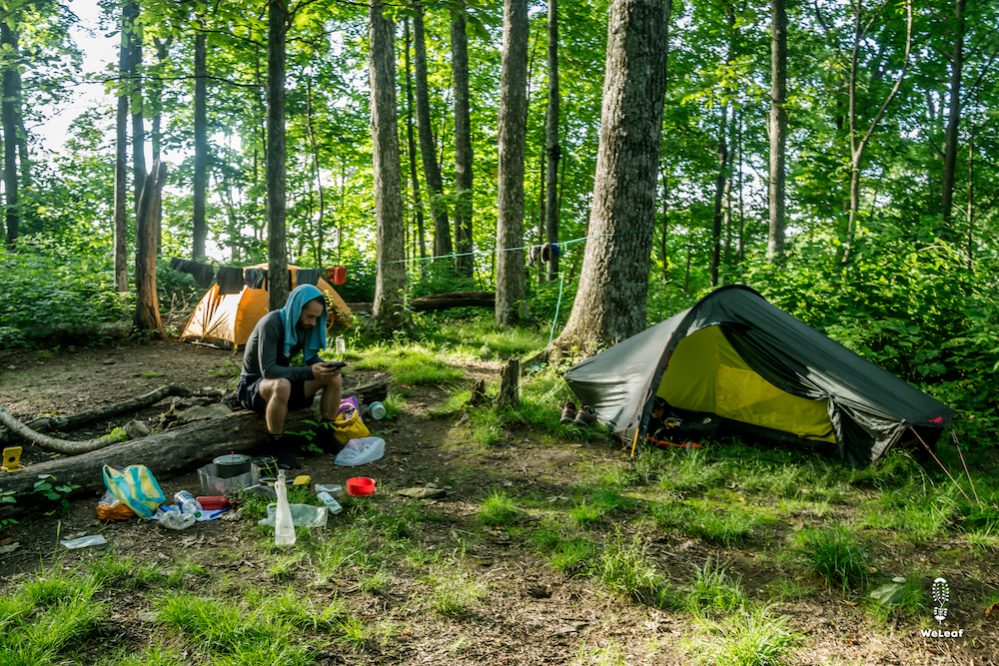
In the forest we refer everything to food. "Hey, it smells like garlic here" or "those leaves look like candies" All scents and shapes remind us of food. It is not the physical exertion that makes the walk difficult. We enjoy pushing hard, sweating and walking uphill. It is all elements besides hiking that make us suffer. The insatiable appetite for food, daily thunderstorms, getting into wet shoes in the morning, countless tiny flies buzzing around your head and flying into your eyes, the humidity, chafing on the hips and between the buttocks, annoying horse flies, nights and nights sleeping on a mat, smelly clothes, sore feet and shoulders, endless itchy feet from all mosquito bites and a backpack that stinks like a dead animal. After a few days we miss the comfort of a bed, good food, a hot shower and clean clothes. Often it is even the small comfort of washing in a small stream, dry clothes after walking, the roof of a shelter or the sun-rays after hours of rain showers that give the comfort and make us forget the suffering of the day. That was not so bad, we think. One day in one of the shelters there is a phrase scratched in the wood 'suffer now, be a hero the rest of your life'.
Many times that we suffer the following days, we think back to that sentence. Pride dominates when we think back to all the suffering in recent years. We think we have become mentally strong. Less than 20% of all hikers who start the 3,500 kilometer challenge in March reach the end. Physically everyone can handle it, but the mental perseverance determines the success. It is easy to give up and choose the way out to comfort. After days of rain and wet clothes, your head asks all sorts of questions. Why am I doing this? Why am I not in a warm house like normal people? The call for comfort is getting bigger and many are losing the mental battle. 25% quit after the first week, disillusioned by their own expectations of a tough adventure. In advance it all seems feasible, until the first difficult moments come during the trip. A thru-hiker who completed the journey eight years ago tells us, "The day you get into your wet clothes in the morning, knocking your frozen socks against a trunk and put on your frozen shoes with a smile, you know that day you will reach the end'. We have been hiking for fifteen days and still enjoy the trail with a smile. Of course we suffer and occasionally miss the comfort, but that one sentence plays in our head. Suffer now, be a hero the rest of your life.
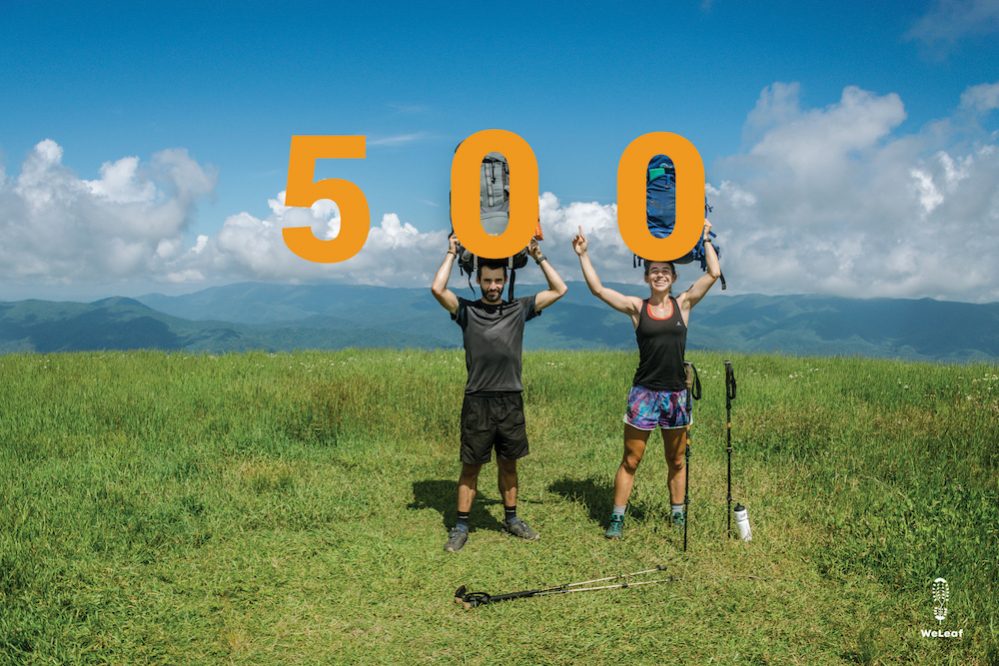
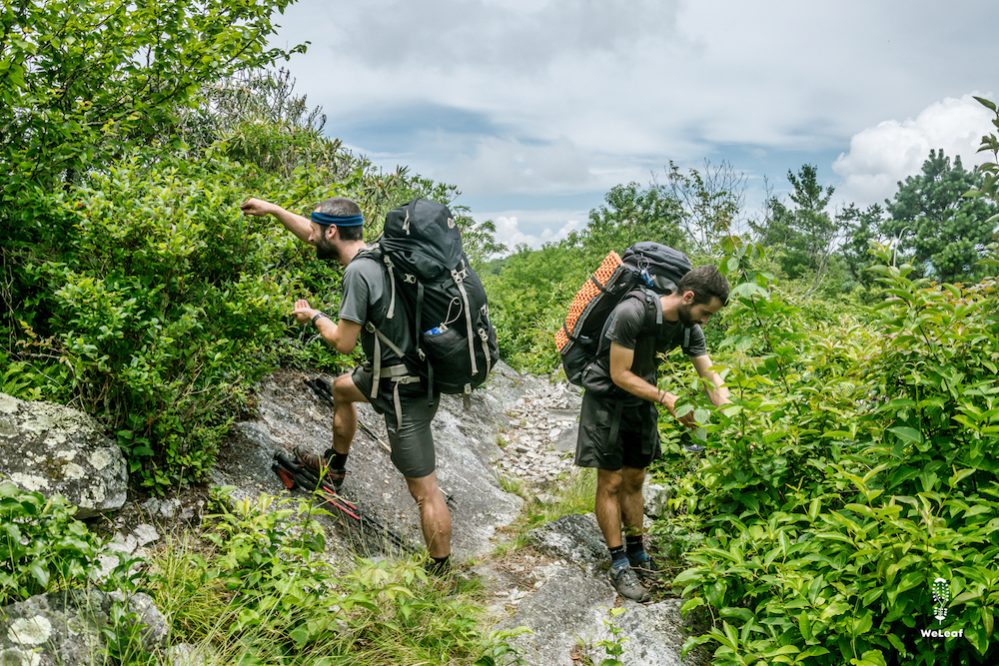
Suffer now, be a hero the rest of you life
The three weeks with Simon fly by and before we know it, we say goodbye to Simon on a sunny Monday morning. He walked more than 300 kilometers and brought us over halfway. The day before last hiking day we asked him what he missed the most from home. "My laboratory" he said proudly. He goes home with a lot of energy and secretly we are a bit jealous of all the plans he has. After almost three years on the road we feel that the journey is no longer infinite. In Mexico, Zoë said one day, "I think I'm almost satisfied, ready to think about the end." Olivier was not surprised, although his feeling was less strong. A few months later our plans are much clearer. After canoeing we want to spend the winter in Canada, west or east. Then we go to the north of Europe to cycle our way home through Scandinavia. We have always said to each other that we want to return home cycling, to complete the circle. It is still far away, but when we think about it during the walk, it is not that far. "Isn't it strange that we might be home next year?" says Zoë. "Yes, weird, a year goes fast" But first we have to walk nearly 500 kilometers. We look back a few times, because we instinctively miss a third person, but we are back with the two of us. "We still have 20 days to see a bear," says Olivier. We should see one at least, we hope.
